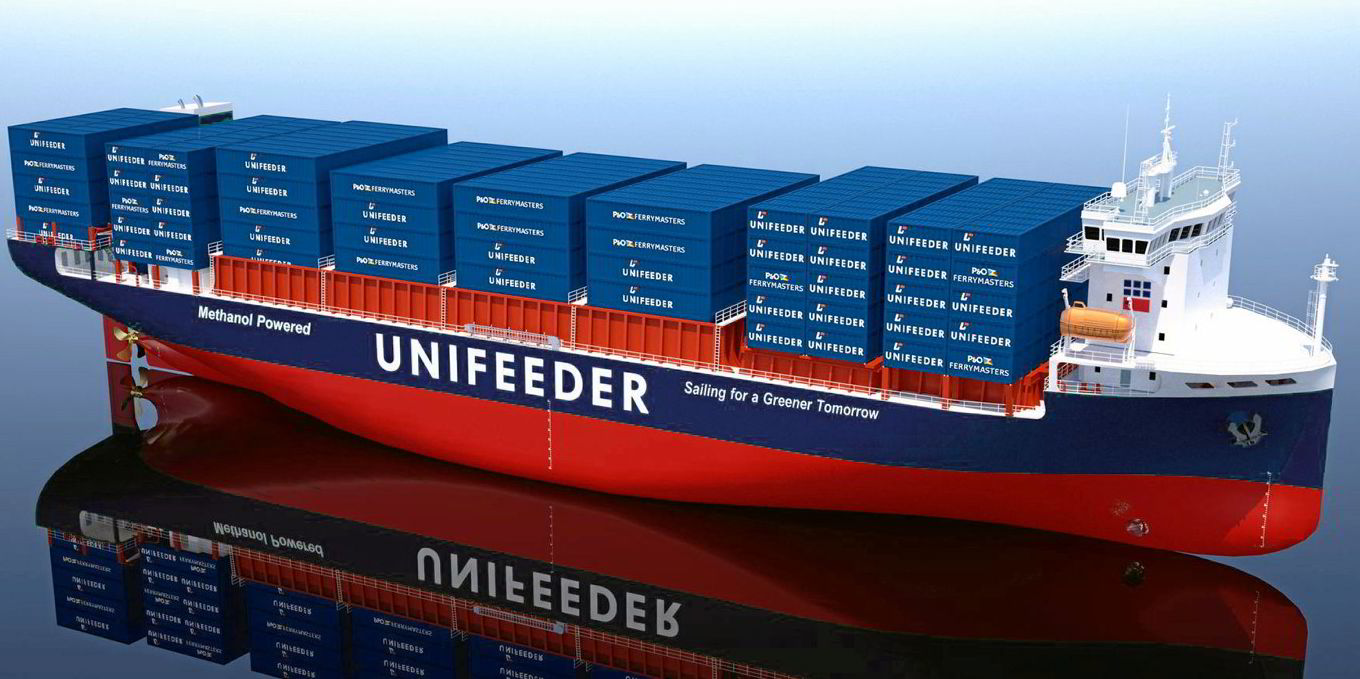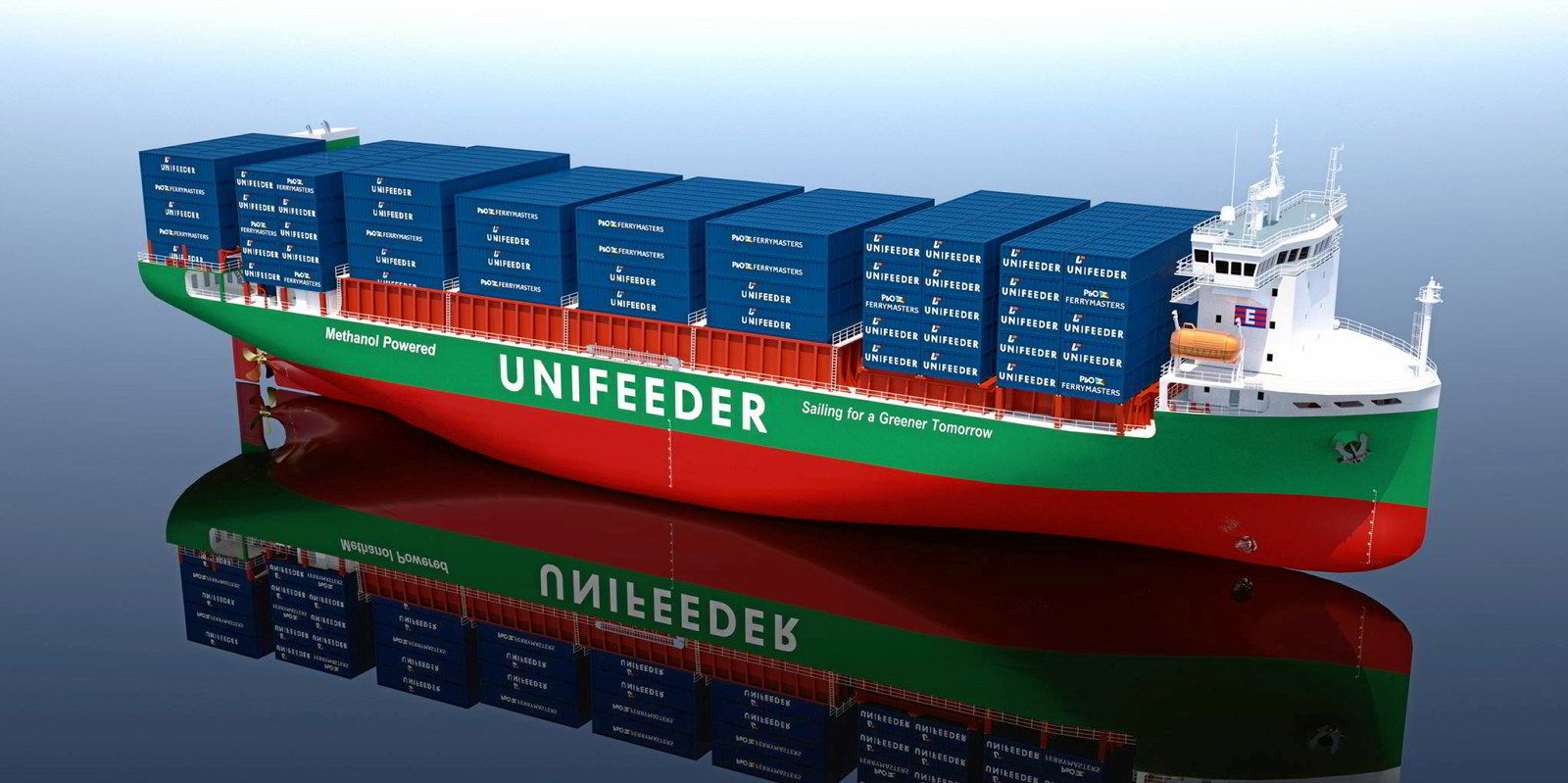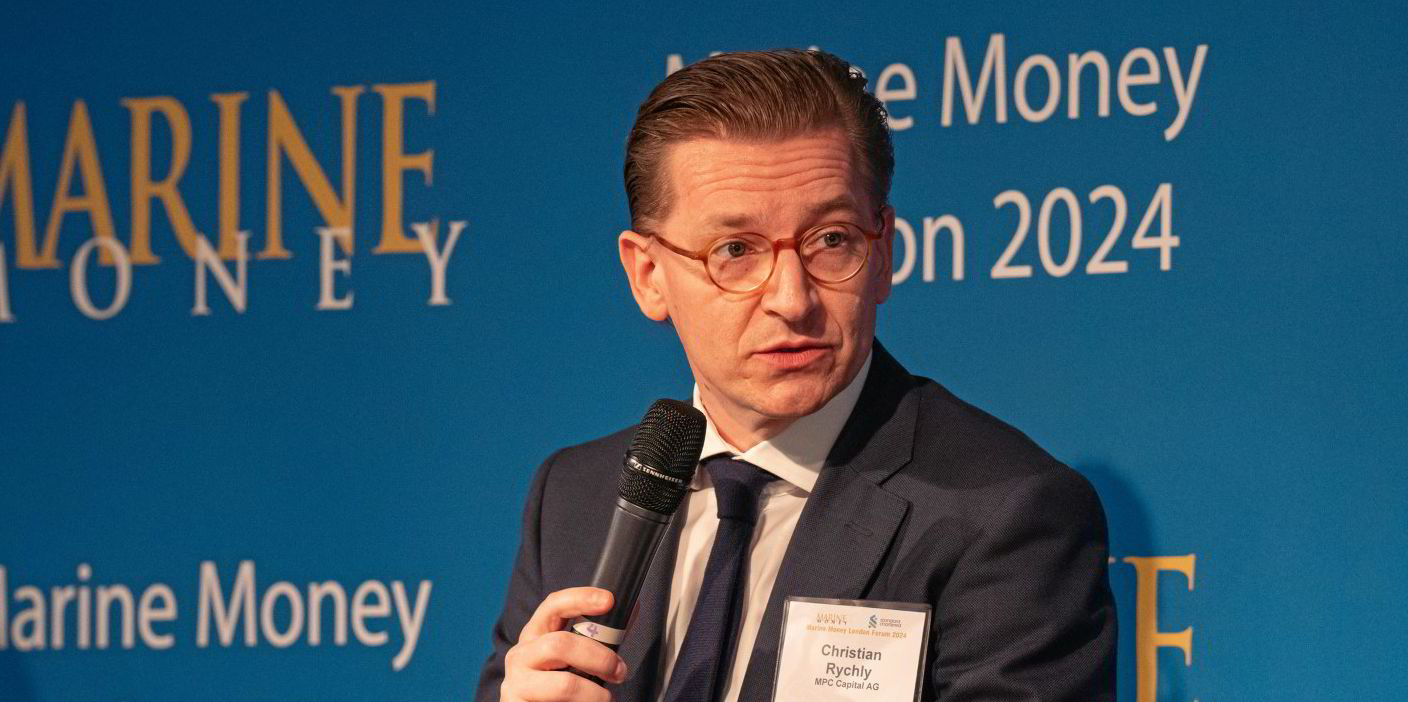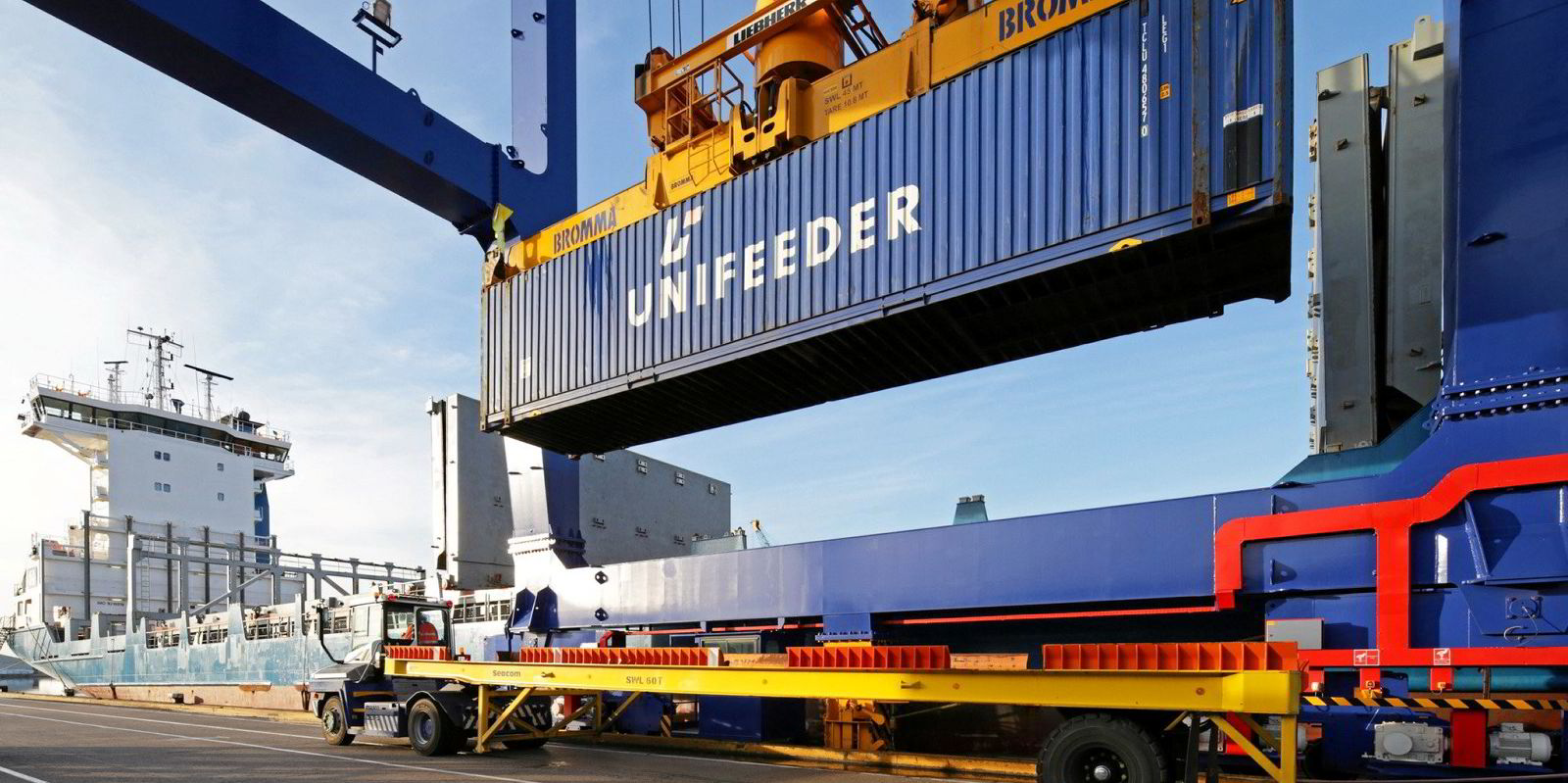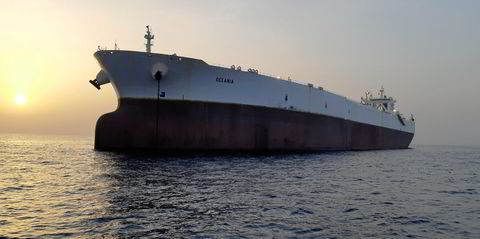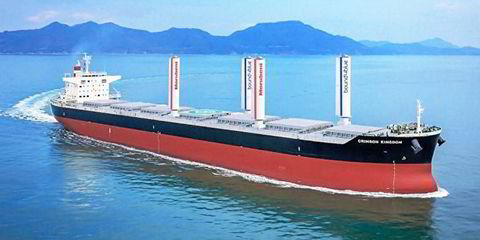Dubai-based feeder container company Unifeeder Group has doubled the number of methanol-capable boxships it has taken on long-term charter to four vessels.
The company revealed on Monday that it has signed agreements to charter two 1,250-teu container ship newbuildings.
German-based shipowning group Elbdeich Reederei and Oslo-listed shipowner MPC Container Ships (MPCC) will build and supply one vessel each.
The ships, ordered at shipyards in China, are scheduled for delivery in 2026 and will be deployed on Unifeeder’s European network.
They follow two identical ships that Unifeeder signed up for with Elbdeich Reederei for in October 2023.
The company said that alongside parent company DP World, it was working with partners across the industry to find solutions to the challenge of renewable-methanol supply.
It explained off-take commitments were needed to build production at the scale that the industry requires to replace conventional fossil fuels.
Seven year charter
Hamburg-based MPCC is participating in the project on the back of a seven-year charter with Unifeeder. The German tonnage provider said this will significantly mitigate residual value risks.
The company added that the newbuilding project was part of its strategic fleet renewal that includes a comprehensive retrofit programme.
MPCC has entered into the joint retrofit agreements with various charter customers, details of which will be unveiled along with its quarterly results on 27 February.
The cost of retrofits will be shared between MPCC and its charterers, followed by an extension of the vessels time-charter contracts, it added.
“This collaborative effort reduces open charter positions, increases contract coverage for 2024 and beyond and enhances the overall efficiency of the fleet, in alignment with MPCC’s strategic objectives,” the company said.
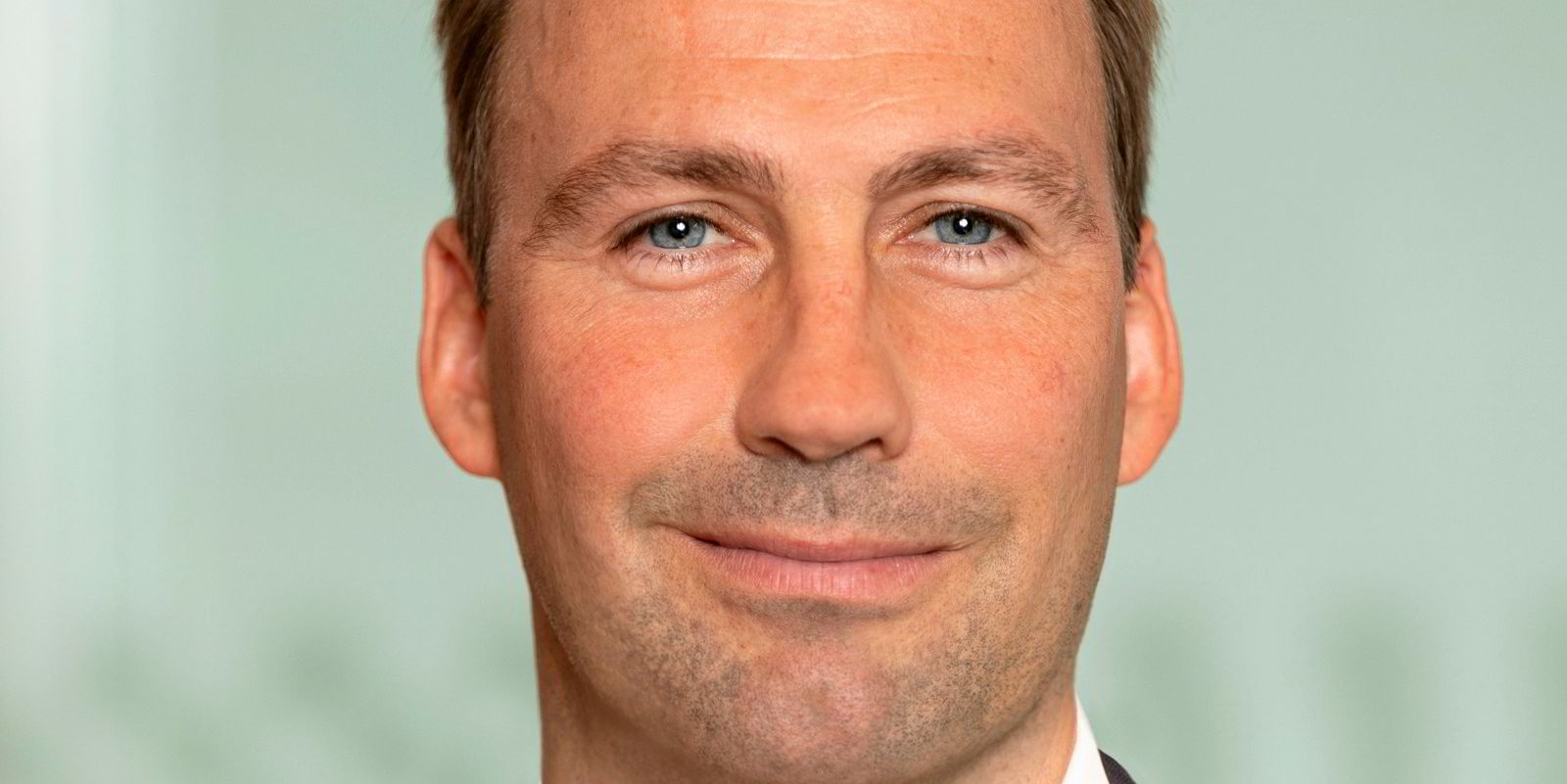
Sustainable
Unifeeder group chief executive Jesper Kristensen said: “Building upon our commitment to methanol-powered vessels last year, this marks another significant stride towards the green transformation of our fleet and operations.
“We anticipate the vessels to enter into operation in the next two years, advancing our steadfast commitment to sustainable solutions.”
Kristensen added that the investment in the two new ships supported Unifeeder’s commitment to reduce emissions by 25% by 2030 and to reach net zero by 2050.
It aims to achieve this by emphasising fuel-efficient practices, regular maintenance and refitting processes of the existing fleet, utilising biofuels in its conventional vessels and “fostering a culture of learning and collaboration, sharing best practices across markets to drive effective carbon reduction strategies”.
Unifeeder has long deployed an asset-light model, sourcing all its tonnage requirements from the charter market.
Kristensen told TradeWinds in an interview last July that while historically the company preferred short-term fixtures to maintain flexibility, it was prepared to go “very long term” to meet its decarbonisation goals.
“It’s going to be an important part of the way we can influence which ships are being built to which specifications,” he said.
Unifeeder operates feeder container services in Europe, North Africa, the Mediterranean and Black Sea, the Caribbean, Asia, the Middle East and the Indian subcontinent.
The company is part of DP World Marine Services, which announced in December 2023 it had reduced its carbon footprint by more than 16% in 2023 from its 2019 baseline of 2,118 ktCO2e by creating efficiencies across its operations.
DP World is also part of the First Movers Coalition, setting a target for 5% of its marine power to come from zero-emissions fuels by 2030.
